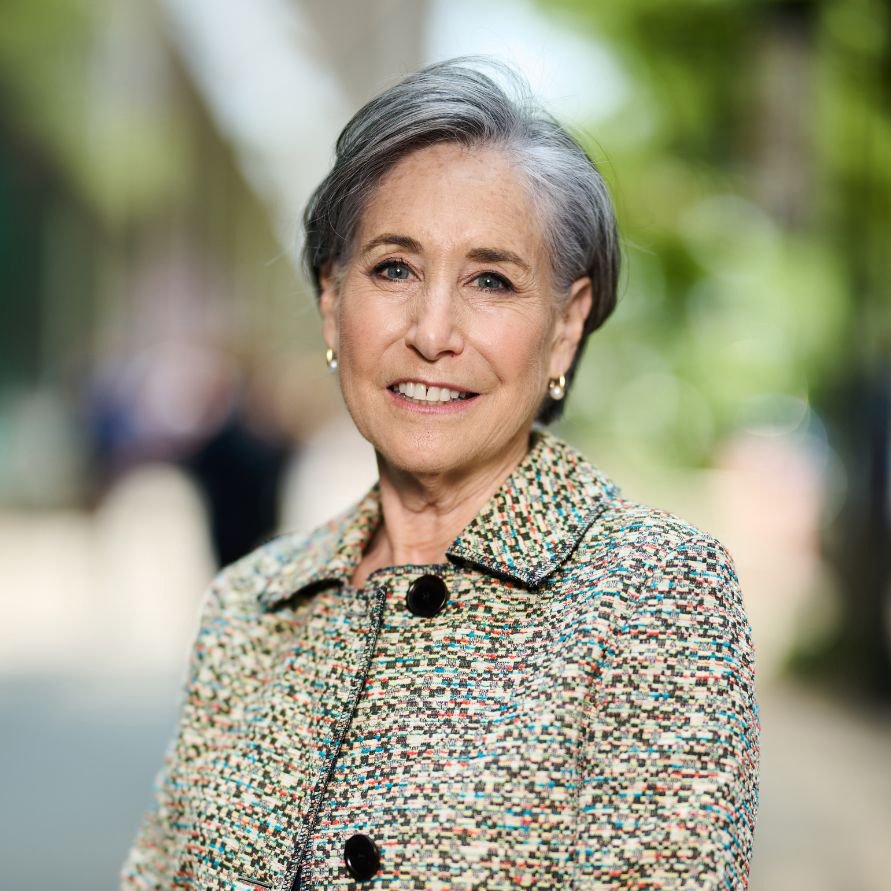In the current climate of higher education, an omni-channel university highlights innovation and adaptability. A thought-provoking HEDx podcast (listen here) hosted by Martin Betts featuring Professor Ann Kirschner and Sue Kokonis from OES, explores the transformative potential of omni-channel education, navigating through challenges, opportunities, and the evolving needs of learners.

Anne Kirschner, an American entrepreneur, academic, and author renowned for works like Sala’s Gift: My Mother’s Holocaust Story and Lady at the OK Corral: The True Story of Josephine Marcus Earp, holds the position of interim president at Hunter College. Her words speak to the essence of education – the cultivation of curiosity and of meaningful discussions. Professor Kirschner’s emphasis on the role of questioning lays the foundation for an engaging learning experience, where students are empowered to think critically.
As education stands at a crucial turning point, Professor Kirschner notes, “the sense that we have lost our way” while simultaneously acknowledging the promise of technology to reshape and enhance learning and how teachers can educate. The challenges of eroding public confidence and the traditional business model prompt a reconsideration of established practices, calling for a more flexible and student-centric approach.
“The notion of omni-channel comes from retail sales, you can buy online or you can go into the store and shop that idea of it being the choice of the student rather than the provider,” explains Professor Ann Kirschner. This concept sparked omni-channel education, borrowing from the retail model. Professor Kirschner envisions a seamless integration of online and classroom learning, empowering and allowing students to choose the mode that aligns with their preferences, lifestyle, and learning style. This shift signifies a move from provider-centric models to a student-centric paradigm, erasing the rigid boundaries that traditionally separated online and classroom education.
However, resistance to change is an ever-present obstacle among faculties, as she points out, “You saw many colleges after COVID reverse direction and then when COVID abated, they forbade their faculty from teaching online. Have we learned nothing?” This resistance highlights a crucial hurdle in the path of innovation – the reluctance to embrace the benefits of online learning even after experiencing its effectiveness during challenging times.
In tackling these challenges, leadership emerges as a crucial factor. “Leadership is that act of listening, and then making room for experimentation and change, embracing change, learning from failure, and then building on successful new models.” – Professor Anne Kirschner. The call is for leaders to not only listen but to create an environment that fosters experimentation and embraces change. She emphasises the importance of learning from failure and building on successful new models, placing innovation at the forefront of educational leadership.
How does this vision translate to the Australian context? Sue Kokonis of OES provides insight, acknowledging both challenges and opportunities. The imperative to prepare students for jobs that have yet to emerge calls for a delicate balance between technological innovation and ethical considerations. “As universities, we need to be on the front foot with this… the tech world needs the thought leadership of universities, front and centre at the table.”
While the concept of an omni-channel university gains traction, Australia faces a unique set of challenges and opportunities. The delicate balance between technological innovation and ethical considerations is crucial, requiring universities to take a proactive stance. Sue Kokonis emphasises that universities should be pioneering this concept, providing thought leadership that influences and guides the tech world.
Reflecting on the Australian mindset regarding regulation, a critical question emerges – are we striking the right balance as a nation and as a sector? The exploration of new technologies is imperative for pushing the boundaries of educational practices. However, it must be guided by appropriate checks and balances, ensuring ethical considerations are at the forefront.
The transformative potential of omni-channel education is vividly depicted through the insights shared by Professor Ann Kirschner and Sue Kokonis, guided by Martin Bretts of HEDx. As we navigate the future of education, the concept of an omni-channel university becomes increasingly viable, guiding institutions towards flexibility, adaptability, and a student-centric approach. This paradigm shift opens the door to a more inclusive, innovative, and resilient educational landscape.
Want to learn more about the concept of omni-channel? Listen to the podcast here.


